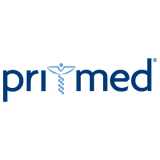Did you mean: medical?
First Steps in Diversity, Cultural Humility, and Patient Care

This session will shine a light on health disparities in the U.S. and ways to overcome them by embracing diversity, combatting bias, and employing cultural competency to improve patient-provider communication.
Category
- Cultural Competency
Format
- Self-study / Enduring
Credits
- 1.00 AANP Contact Hours
- 1.00 AMA PRA Category 1 Credit™
A Comprehensive Approach to Obesity Management

In this podcast expert faculty will discuss the Obesity Medicine Association’s 4 pillars of clinical obesity treatment as a comprehensive, evidence-based approach to management, comprised of nutrition, physical activity, behavior, and medication.
Category
- Weight Management
Format
- Podcast
Credits
- 0.60 AANP Contact Hours
- 0.50 AMA PRA Category 1 Credit™
What Strategies Can PCPs Use to Improve Communication About Obesity with Patients?

Engaging in patient-centered communication when discussing obesity is a crucial step toward helping your patients reach their weight-management goals.
Category
- Weight Management
Format
- Self-study / Enduring
Credits
- 0.42 AANP Contact Hours
- 0.50 AMA PRA Category 1 Credit™
P.A.C.T.: Practical Approaches to Comprehensive Treatment of Pain

The nation is facing competing public health issues: the need to treat a large number of Americans with acute and chronic pain vs the crisis of prescription opioid abuse.
Category
Format
- Self-study / Enduring
Credits
- 3.50 AANP Contact Hours
- 1.59 AANP Pharmacology Contact Hours
- 3.50 AMA PRA Category 1 Credit™
Navigating Pain Management: A Case Study Addressing Strategies for Initial Treatment and Counseling

When considering opioids for treating both short-term and long-term pain, it's crucial to prioritize patient safety. This means conducting thorough risk assessments and engaging in open conversations with your patients.
Category
Format
- Self-study / Enduring
Credits
- 0.38 AANP Contact Hours
- 0.19 AANP Pharmacology Contact Hours
- 0.50 AMA PRA Category 1 Credit™
Understanding Dementia: Characterization, Diagnosis, and Patient Care

As people live longer, the burden of dementia will increase for families, society, and the healthcare system. This session will enable you to help your patients by teaching you how to classify, diagnose, and treat all forms of dementia.
Category
Format
- Self-study / Enduring
Credits
- 1.00 AANP Contact Hours
- 0.25 AANP Pharmacology Contact Hours
- 1.00 AMA PRA Category 1 Credit™
New and Emerging Therapies for Agitation Associated with Dementia Due to Alzheimer’s Disease (AD) An Interactive Learning Experience

Agitation is among the most common behavioral symptoms in patients with dementia, including Alzheimer’s dementia. It exacts a significant burden on patients because it is associated with not only greater morbidity and mortality, but also a faster cognitive and functional decline.
Category
Format
- Self-study / Enduring
Credits
- 0.36 AANP Contact Hours
- 0.36 AANP Pharmacology Contact Hours
- 0.50 AMA PRA Category 1 Credit™
Urgent Encounters: Acute Infections in Primary Care

Primary care clinicians are often the first point of contact for patients presenting with acute infection. This case-based session will cover a practical approach to common infections in the urgent care setting.
Category
Format
- Self-study / Enduring
Credits
- 1.00 AANP Contact Hours
- 0.60 AANP Pharmacology Contact Hours
- 1.00 AMA PRA Category 1 Credit™
Diabesity: Confronting the Dual Epidemic of Diabetes and Obesity

This session will delve into the intersection of obesity and type 2 diabetes. Learners will explore strategies for glycemic and weight management, cardiorenal protection, and cardiovascular risk mitigation, with an emphasis on the latest guidelines for managing type 2 diabetes and providing holi
Category
- Diabetes Mellitus (DM)
- Weight Management
Format
- Self-study / Enduring
Credits
- 1.00 AANP Contact Hours
- 0.25 AANP Pharmacology Contact Hours
- 1.00 AMA PRA Category 1 Credit™
Bridging the Gap: Emotional and Cultural Intelligence in Clinical Practice

The most productive companies in the world stress the importance of both emotional and cultural intelligence in their leaders. We will look at applying these principles to patient care as a way to improve adherence, quality outcomes, and clinician success. The key is self-awareness.
Category
- Cultural Competency
Format
- Self-study / Enduring
Credits
- 1.00 AANP Contact Hours
- 1.00 AMA PRA Category 1 Credit™

 Facebook
Facebook Twitter
Twitter LinkedIn
LinkedIn Forward
Forward